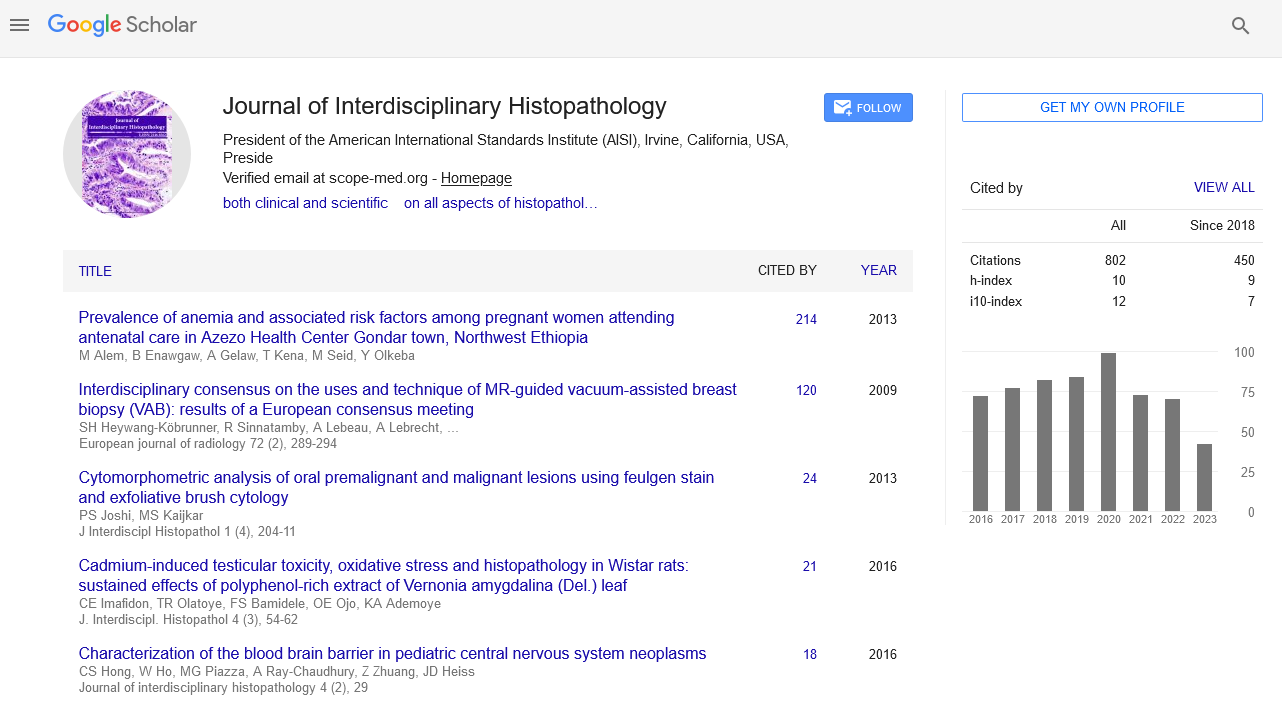Histopathologic Effect of Prenatal Topiramate Exposure on Rat Cerebral Cortex and Hippocampus
Abstract
Hagar A Hashish
Objective: Topiramate is a recent antiepileptic agent approved for treatment of seizure in adults, children and during pregnancy. No much available reports concerning topiramate teratogenic potential in humans. This could be explained by limited number of pregnancies exposed. Very few reports are available on animal experimentation with controversial results. This work aimed to clarify the histopathologic effects of prenatal topiramate exposure on the cerebral cortex and the hippocampus of newborn rats. Material and methods: 12 female pregnant rats were divided into control and treated groups, 6 rats in each group. The treated group was given topiramate dissolved in tap water, from day 0 of pregnancy till the delivery, through oral route in dose of 200mg/kg. The control group received tap water at the same time. In the end of the treatment, the cerebral cortex and the hippocampus were stained with hematoxylin and eosin (H&E) and immnunohistochemically for glial fibrillary acidic protein (GFAP). Results: The control rat cerebral cortex showed that granule cells were small cell with dense cytoplasm, pyramidal cells appeared with triangular cell body, light cytoplasm and small nucleus. Strong GFAP positive immunostaining was detected in the astrocytes in both granule cell and pyramidal cell layers. The pyramidal cells in Cornu Ammonis showed characteristic palisade arrangement, with lightly stained cytoplasm and central nucleus. Granule cells of the dentate gyrus were rounded, packed, dense. Strong GFAP positive immunostaining was detected in the astrocytes in both pyramidal cell and granule cell layers. In treated rats, granule and pyramidal cells in the cerebral cortex and hippocampus were disorganized with signs of degeneration. Faint GFAP positive immunostaining was detected in the astrocytes in granule and pyramidal cell layers. Conclusion: Long-term daily use of topiramate during pregnancy can lead to noticeable pathological neurotoxic effect in the cerebral cortex and hippocampus which may be implicated in cognitive affection. Neurological effect of topiramate necessitates further investigations.






